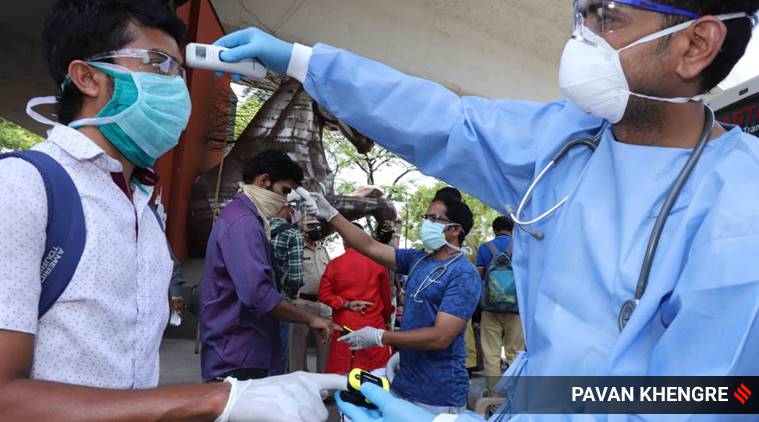 While social stigma has been partially addressed, the macro-level steps taken by the government, especially with regards to the procurement of PPEs for the frontline workers, leave a lot to be desired. (Representational)
While social stigma has been partially addressed, the macro-level steps taken by the government, especially with regards to the procurement of PPEs for the frontline workers, leave a lot to be desired. (Representational)
Ever since the dawn of a post-COVID-19 reality, the world’s focus has temporarily shifted from geopolitical faultlines, like belligerent neighbours and trade wars, to a human catastrophe that is still unfolding. On at least three occasions, Prime Minister Narendra Modi has announced mass acts of appreciation for healthcare workers, the last one being the show of support from the armed forces. But this has not led to sensitive handling of the needs of healthcare workers (HCWs) and an appreciation of the issues plaguing them.
The government took a laudable initiative by promulgating The Epidemic Diseases (Amendment) Ordinance, 2020 to check the acts of violence — including social ostracisation — perpetrated by insensitive landlords and neighbours. However, the implementation of the law remains a concern: HCWs continue to suffer discrimination even while being praised in social media posts and WhatsApp forwards.
The ordinance provides a broad definition to “acts of violence” and by extension, provides better protection, at least on paper. This has, however, failed to transpire into action — cases of assault by police continue to make headlines. The government should embark on a sensitisation exercise that should complement the blitz of the sporadic acts of applause.
While social stigma has been partially addressed, the macro-level steps taken by the government, especially with regards to the procurement of PPEs for the frontline workers, leave a lot to be desired. The ICMR, which doesn’t have any history or experience with procurement strategies, was given the responsibility to procure PPES. The Centre should encourage the state governments to spearhead PPE procurement to prevent more HCWs from being exposed to the disease.
The lapses in the procurement of PPE kits have resulted in high exposure of healthcare workers to the disease. According to reports, more than 500 doctors, nurses and paramedics have been infected by the virus. This figure does not include the number of field workers, ward boys, sanitation workers, security guards, lab attendants, peons, laundry and kitchen staff at healthcare centres.
The matter requires urgent consideration — we have seen that with more HCWs contracting the disease, the number of those willing to work under such pitiable conditions comes down sharply.
It is high time that India focuses on bringing a healthcare services welfare bill to protect the interests of HCWs, especially nurses and other paramedical staff, whose working conditions often compel them to make difficult choices. The government needs to recognise that HCWs are exposed to several diseases all year round.
The ordinance to amend the Epidemics Act, 1897 offers too little to the HCWs. There is no law to deal with the welfare of healthcare workers. The Delhi Medical Council’s recommendation to the state for compensation to medical staff who fall sick or succumb to the virus, while on duty, also doesn’t address the root cause of the problem. The last major step in this regard was taken by the Supreme Court in Trained Nurses Association V. Union of India, 2016. The Court directed the Centre to lay down guidelines for the welfare of nurses. But no efforts have been undertaken to alleviate the concerns raised in that petition. HCWs require a special legislation, as directed by the SC, to address their concerns — not a patchwork of temporary provisions. This is arguably the best way to thank the healthcare workers for their services during this crisis.
The ruling dispensation, and the public in general, have related to the healthcare worker with a “hero syndrome” during the pandemic. Terms like COVID warriors have been used abundantly. It is, of course, important to appreciate the courage of the healthcare community, which has tried to serve the nation despite difficult odds. But it is equally important to acknowledge their concerns and not sacrifice them on the altar of hero worship.
Citizens need to be sensitised by the government and the government should be questioned consistently on the issue of HCW safety. The authorities should not muzzle the genuine concerns raised by doctors and nurses as it has often done during the lockdown.
It is time we see HCWs as complex human beings and not merely hero-worship them.
(The writer is honorary legal adviser at the Indian Professional Nurses Association)